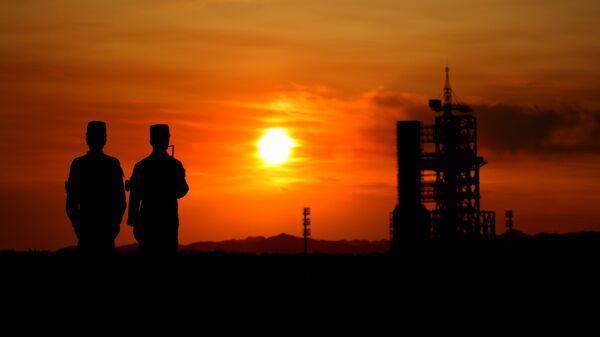China's space base in Argentina's Patagonia is making Washington feel unease amid Beijing's consistent expansion in Latin America, once considered the US' backyard.
"The isolated base is one of the most striking symbols of Beijing's long push to transform Latin America and shape its future for generations to come — often in ways that directly undermine the United States' political, economic and strategic power in the region," remarked Ernesto Londono, an editorial writer for The New York Times.
However, according to Gustavo Cardozo, an analyst at the Argentine Center for International Studies (CAEI), the Chinese endeavor is pursuing far more ambitious goal: Beijing is seeking to become a major space power.
"China has a very serious intention to go into space and compete strategically with the United States," Cardozo told Sputnik Mundo. "This military base allows not only to control outer space, because the Argentine Patagonia and southern Chile are very good regions in terms of visualizing the cosmos."
The installation started operating in March 2018. According to The New York Times, the station plays a pivotal role in Beijing's bold endeavor to kick off "an expedition to the far side of the moon."
Cardozo elaborated that in recent years, China has launched a number of similar projects, which indicates that Beijing is pretty serious about the "space race" idea. The Chinese leadership is making huge investments in space exploration in order to become a major player in the field, the analyst opined.
In fact, this base is part of a long-distance space network created to support Chinese operations in outer space, he explained.
As The Diplomat noted in 2016, while covering the Sino-Argentinian project, Beijing maintains other ground stations "to support its manned space program" — in Namibia, Pakistan and Kenya.
Latin America and 'Beijing Consensus'
The analyst highlighted that in the eyes of Beijing, the continent has a strategic significance given its vast natural resources. Recently, the US "stopped paying attention" to South America, and China sees how to take advantage of this, he noted.
"Under Donald Trump, the gap between Washington and Latin America has deepened," Cardozo stressed. "China fills the niche left by the US, with the help of large investments."
Besides, China is beefing up its military presence in the region, the analyst noted, referring to the fact that the perimeter of the Chinese space station in Patagonia is controlled by Chinese troops, and "people who live in this area are not allowed to enter the territory [of the base]."
According to him, one of Beijing's competitive advantages is that it does not meddle in the domestic affairs of foreign states: China views other countries as equal partners and respects their sovereignty.
In contrast, the so-called Washington Consensus dictates a set of rules for countries receiving assistance from institutions under the auspices of the United States.
The analyst highlighted that "today, one can say that there is a certain 'Beijing Consensus,' based on non-interference in the internal affairs of other countries."
The views and opinions expressed by the speaker do not necessarily reflect those of Sputnik.







